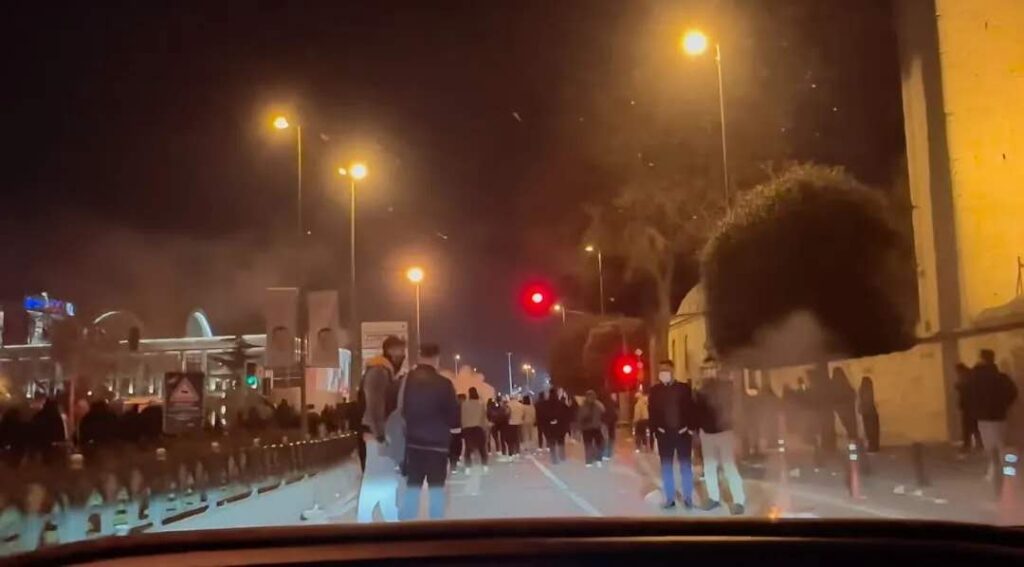
Thousands of people across Turkey have taken to the streets for a seventh consecutive night of protests following the arrest of Istanbul Mayor Ekrem Imamoglu on corruption charges. The demonstrations began last Wednesday and resulted in more than 1,400 detentions, including students, journalists, and lawyers. These protests are reportedly the largest since the Gezi Park demonstrations of 2013, which saw approximately three million participants.
Police Response
Authorities have implemented stringent measures to control the growing unrest, including banning public gatherings in Istanbul and closing certain roads “to maintain public order.” Despite these restrictions, thousands of university students gathered in Maçka Park on Tuesday evening before marching toward Şişli district, chanting “government, resign!” Many protesters concealed their faces with scarves or masks, fearing identification by police deployed in large numbers to monitor the demonstrations.
Political Context
The arrest of Mayor Imamoglu, who is widely regarded as President Recep Tayyip Erdogan’s main political rival, occurred on March 19—the same day he was expected to be selected as the Republican People’s Party (CHP) presidential candidate for the 2028 elections. This timing has fueled allegations that the charges are politically motivated, a claim that President Erdogan and his government have vehemently denied.
Opposition Response
The Republican People’s Party (CHP) has announced plans for a major rally in Istanbul on Saturday. “Are you ready for a big rally in a large square in Istanbul on Saturday?” CHP leader Ozgur Ozel asked supporters. “To support Imamoglu, to object to his arrest, to object to the detention of each of our mayors. To demand transparent, open, live broadcast trials, to say that we have had enough and we want early elections.”
International Reaction
Rights groups and the United Nations have condemned both the arrests and the use of force against protesters. In Washington, Secretary of State Marco Rubio expressed “concerns” following a meeting with Turkish Foreign Minister Hakan Fidan. Meanwhile, press freedom advocates have criticized the detention of at least eight journalists covering the demonstrations.